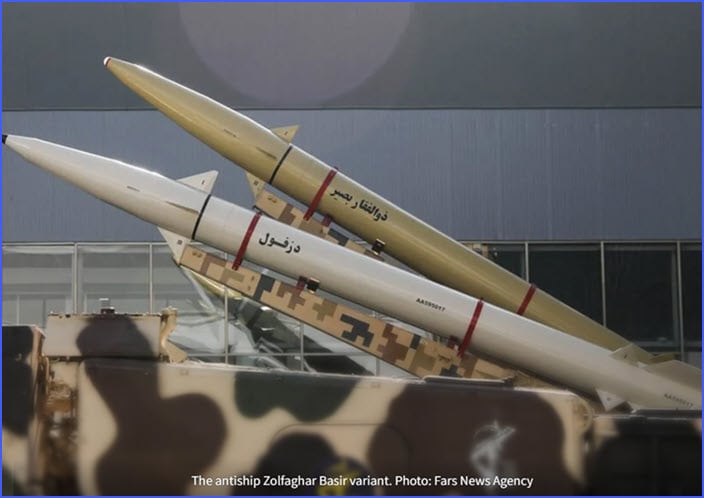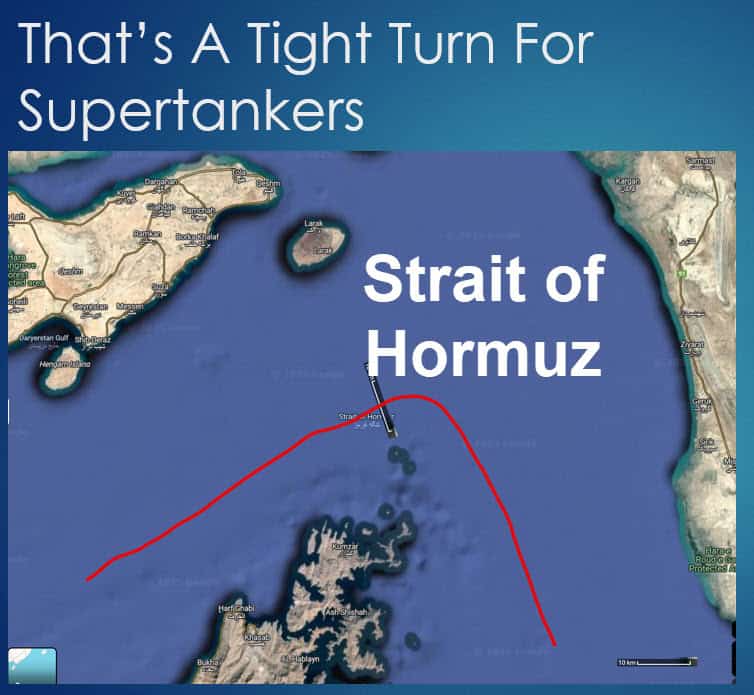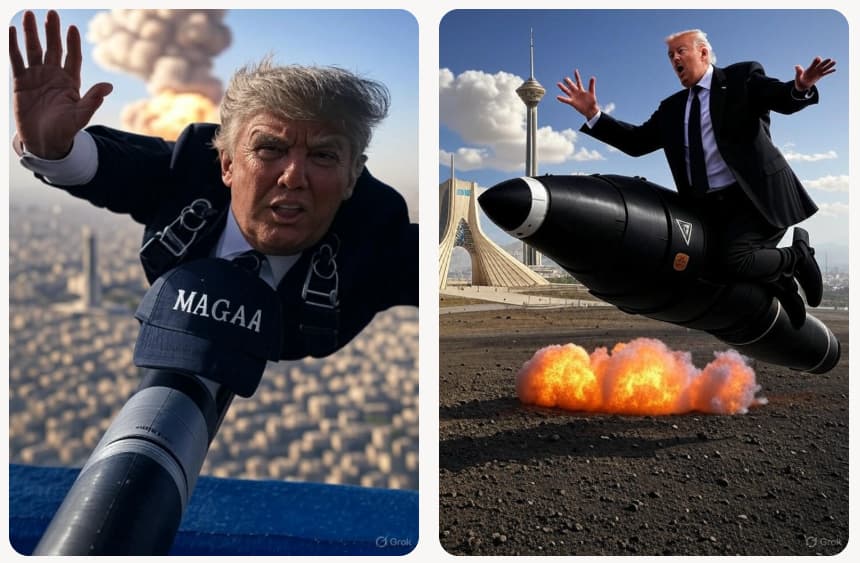Originally published at: https://peakprosperity.com/closing-this-global-oil-chokepoint-crashes-the-worlds-economy/
Have you ever wondered what would happen to oil prices and the world’s economy if the Strait of Hormuz were blocked? Is it even within Iran’s power to do such a thing? Could they?Today, I dive into what happens if this tiny stretch of water in the Persian Gulf gets shut down, why it’s a geopolitical powder keg, and how Iran’s military capabilities make this a very real threat.
What’s at Stake: The Strait of Hormuz is the world’s most critical oil chokepoint, handling roughly 21 million barrels per day—about 20% of global oil consumption but a whopping 40-50% of all exported oil. The Strait is really but a pair of 2-mile-wide channels, one for inbound traffic and the other for outbound, flanked by Iran and the UAE. It is the lifeline for oil from Saudi Arabia, Iraq, Qatar, and others, mostly headed to Asia.
If Iran closes it, say in response to a U.S. or Israeli strike, we’re looking at oil prices spiking to $200, $300, or even $400 a barrel. That will be a gut punch to debt-laden Western economies, but especially the U.S.'s, potentially triggering market crashes, derivative meltdowns, and the worst economic depression in modern times.
Iran’s Ace in the Hole
Iran’s not just talking tough—they’ve got the hardware to back it up. Their anti-ship ballistic and cruise missiles, like the Kalij Fars (300 km range), Hormuz 1 and 2 (300 km), and Zulfigar Basir (700 km), can hit moving ships with pinpoint accuracy, thanks to electro-optical and anti-radiation seekers. Some, like the Kheibar Shekan, reach up to 1,500 km, covering the Persian Gulf, Gulf of Oman, and parts of the Arabian Sea.
These are launched from mobile trucks, think a missile launcher in a QuickLube down the street, making them a nightmare to target. Add in underground bases loaded with easily (and rapidly deployable) speedboats, drones, and mines, and Iran could lock down the Strait faster than you could say “oil embargo.”
Iran’s recent success in hitting Israel targets from up to 1,500 kilometers away should be causing level-headed people everywhere to conclude that Iran has the skill to hit oil tankers crawling slowly down their shoreline.
Why The Strait Of Hormuz Is Vulnerable
Consider the turning radius of massive supertankers (poor) and now think of them navigating the extremely sharp bend in the Strait of Hormuz.
Again, there’s just one channel for inbound traffic and one for outbound traffic.
Now consider Iran’s rugged coastline, dotted with towns and cities, offering nearly unlimited hiding spots for their mobile rocket launchers. Recent Iran-Israel tensions, including Israeli strikes on Iranian oil infrastructure, have Iran openly warning they’ll shut the Strait if pushed further.
According to the views of the above gentleman, “the closure of the Strait of Hormuz would be a sideshow,” meaning it’s one of the easier tasks to accomplish should a bigger war break out.
Defending it from Iran? Near impossible. The antiship missiles are too small, mobile, and numerous to have any hope of bombing them all, or even very many of them.
If a tanker gets hit or mines are dropped, it’s game over for oil transit. Insurance companies will drop coverage, and the ships won’t budge.
Economic & Political Fallout
A closure lasting even a few weeks would send oil prices through the roof. A month or more? Now we’re talking total economic chaos, markets tanking, supply chains seized, and our deficit-spending house of cards in the West begins collapsing. It’s not just about the 20% of oil that will be missing from the world’s economic engines; it’s the fact that 40-50% of the world’s exported oil passes through the Strait of Hormuz on a daily basis, and that’s what sets global oil prices. China, India, and everyone else will be bidding for what’s left, and we’ll all feel the pain.
This isn’t just about oil—it’s about geopolitics and self-inflicted wounds. If the U.S. or its allies strike Iran, expecting no pushback, they’re delusional. Iran’s got a big card to play, and they know it. The Pentagon and CIA likely get this, even if some hawkish folks don’t. Any kinetic action—a bombed tanker, a mined Strait—means you need to run, not walk, to your final preparations. The economic repercussions could be severe and lasting. If that happens, MAGA is fractured forever, Trump’s chance at being a truly historic President that set America back on a path to vigor and health will be lost.
The Strait of Hormuz is a global Achilles’ heel. If it goes down, life gets harder, fast. Stay sharp, stay prepared, and keep your eyes on this chokepoint. It’s not just a stretch of water; it’s the fuse for a global economic crisis. For more, join me at Peak Prosperity for part two of this discussion.
For my Peak Prosperity subscribers, we’re digging deeper into the odds of a U.S. bombing campaign, the economic ripple effects, and the broader societal fracturing we’re seeing, including fifth-generation warfare tactics aimed at breaking our spirit.



